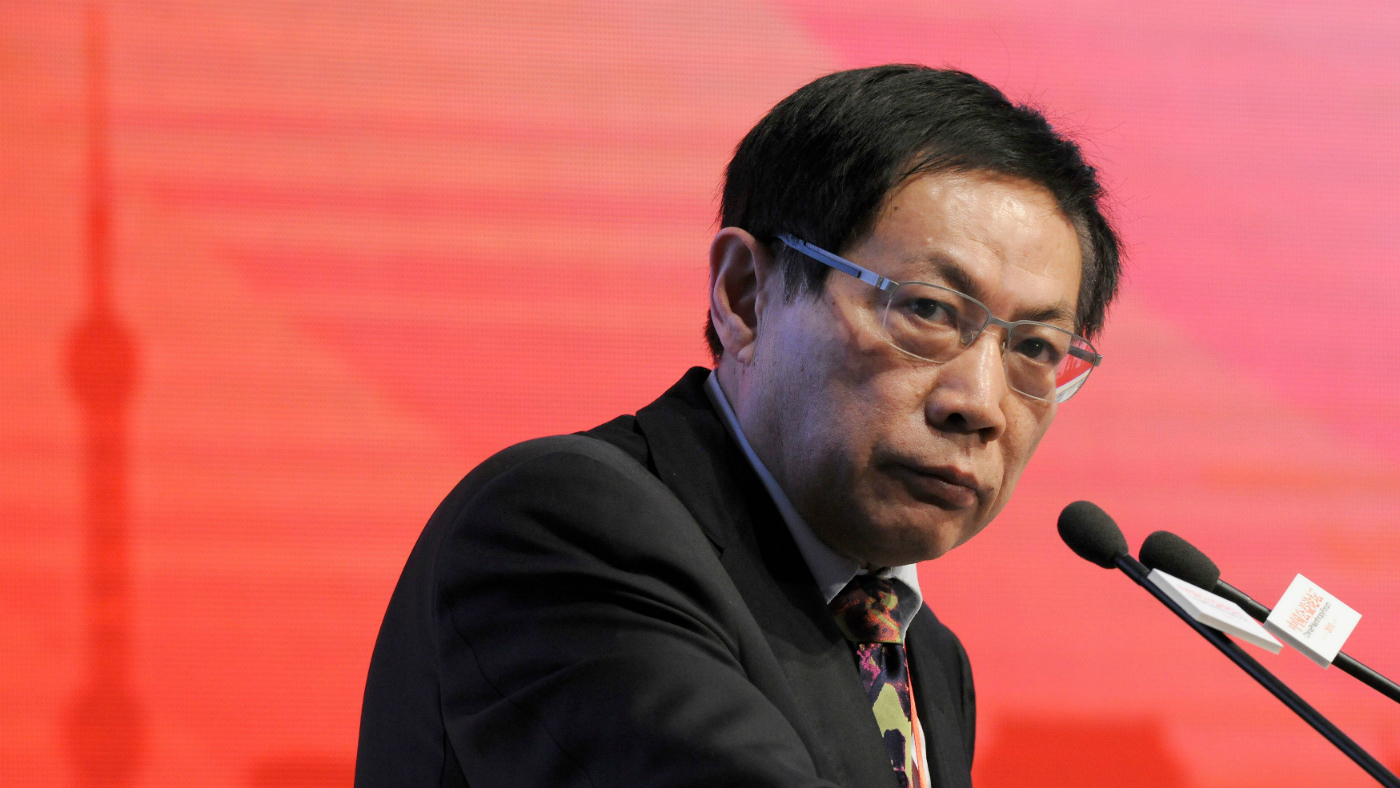Chinese property mogul jailed after Xi Jinping ‘clown’ jibe
Ren Zhiqiang criticised president’s handling of Covid crisis shortly before being indicted on corruption charges

A free daily email with the biggest news stories of the day – and the best features from TheWeek.com
You are now subscribed
Your newsletter sign-up was successful
A Chinese billionaire has been jailed for 18 years just months after publicly describing the country’s president as a “clown” over his handling of the coronavirus outbreak.
Proprety tycoon Ren Zhiqiang was placed under investigation in April over charges relating to corruption, bribery and embezzlement of public funds. According to a newly released statement from the Beijing No 2 Intermediate Court, the 69-year-old has been imprisoned and fined 4.2 million yuan (£485,000) after he “voluntarily confessed to all charges”.
The court said that Ren - who according to Al Jazeera was once part of the ruling Communist Party’s “inner circle” - had accepted bribes worth 1.25m yuan and embezzled almost 50m yuan.
The Week
Escape your echo chamber. Get the facts behind the news, plus analysis from multiple perspectives.

Sign up for The Week's Free Newsletters
From our morning news briefing to a weekly Good News Newsletter, get the best of The Week delivered directly to your inbox.
From our morning news briefing to a weekly Good News Newsletter, get the best of The Week delivered directly to your inbox.
But as the BBC notes, “rights groups have consistently accused China of using corruption charges as a way to clamp down on dissent” - and many believe that Ren, nicknamed the “Big Cannon” for his outspokenness, may be the victim of those tactics.
Ren landed in hot water in February after penning an essay criticising the Chinese leadership’s response to the Covid pandemic.
“What stands there is not an emperor showing off his ‘new clothes’, but a clown who wants to be an emperor even without clothes on,” he wrote in the blog post. “He would not hide by the slightest his ambition to be an emperor and his determination to eradicate anyone in the way.”
The Times reports that Zen was “thought to have some political immunity because of his links to senior politicians”. However, he disappeared in March and was confirmed to be under investigation by Beijing in April.
A free daily email with the biggest news stories of the day – and the best features from TheWeek.com
China’s court system “has a conviction rate of around 99%” and “corruption charges are often used to go after Communist Party insiders who fall afoul of the leadership”, CNN reports.
As the BBC’s China correspondent Stephen McDonell says: “If you have not lived in China recently, it might be hard to imagine just how much of a line you are crossing when you publicly criticise Xi Jinping.”
-
 The ‘ravenous’ demand for Cornish minerals
The ‘ravenous’ demand for Cornish mineralsUnder the Radar Growing need for critical minerals to power tech has intensified ‘appetite’ for lithium, which could be a ‘huge boon’ for local economy
-
 Why are election experts taking Trump’s midterm threats seriously?
Why are election experts taking Trump’s midterm threats seriously?IN THE SPOTLIGHT As the president muses about polling place deployments and a centralized electoral system aimed at one-party control, lawmakers are taking this administration at its word
-
 ‘Restaurateurs have become millionaires’
‘Restaurateurs have become millionaires’Instant Opinion Opinion, comment and editorials of the day
-
 The fall of the generals: China’s military purge
The fall of the generals: China’s military purgeIn the Spotlight Xi Jinping’s extraordinary removal of senior general proves that no-one is safe from anti-corruption drive that has investigated millions
-
 Epstein files topple law CEO, roil UK government
Epstein files topple law CEO, roil UK governmentSpeed Read Peter Mandelson, Britain’s former ambassador to the US, is caught up in the scandal
-
 Iran and US prepare to meet after skirmishes
Iran and US prepare to meet after skirmishesSpeed Read The incident comes amid heightened tensions in the Middle East
-
 Israel retrieves final hostage’s body from Gaza
Israel retrieves final hostage’s body from GazaSpeed Read The 24-year-old police officer was killed during the initial Hamas attack
-
 China’s Xi targets top general in growing purge
China’s Xi targets top general in growing purgeSpeed Read Zhang Youxia is being investigated over ‘grave violations’ of the law
-
 Panama and Canada are negotiating over a crucial copper mine
Panama and Canada are negotiating over a crucial copper mineIn the Spotlight Panama is set to make a final decision on the mine this summer
-
 Why Greenland’s natural resources are nearly impossible to mine
Why Greenland’s natural resources are nearly impossible to mineThe Explainer The country’s natural landscape makes the task extremely difficult
-
 Iran cuts internet as protests escalate
Iran cuts internet as protests escalateSpeed Reada Government buildings across the country have been set on fire